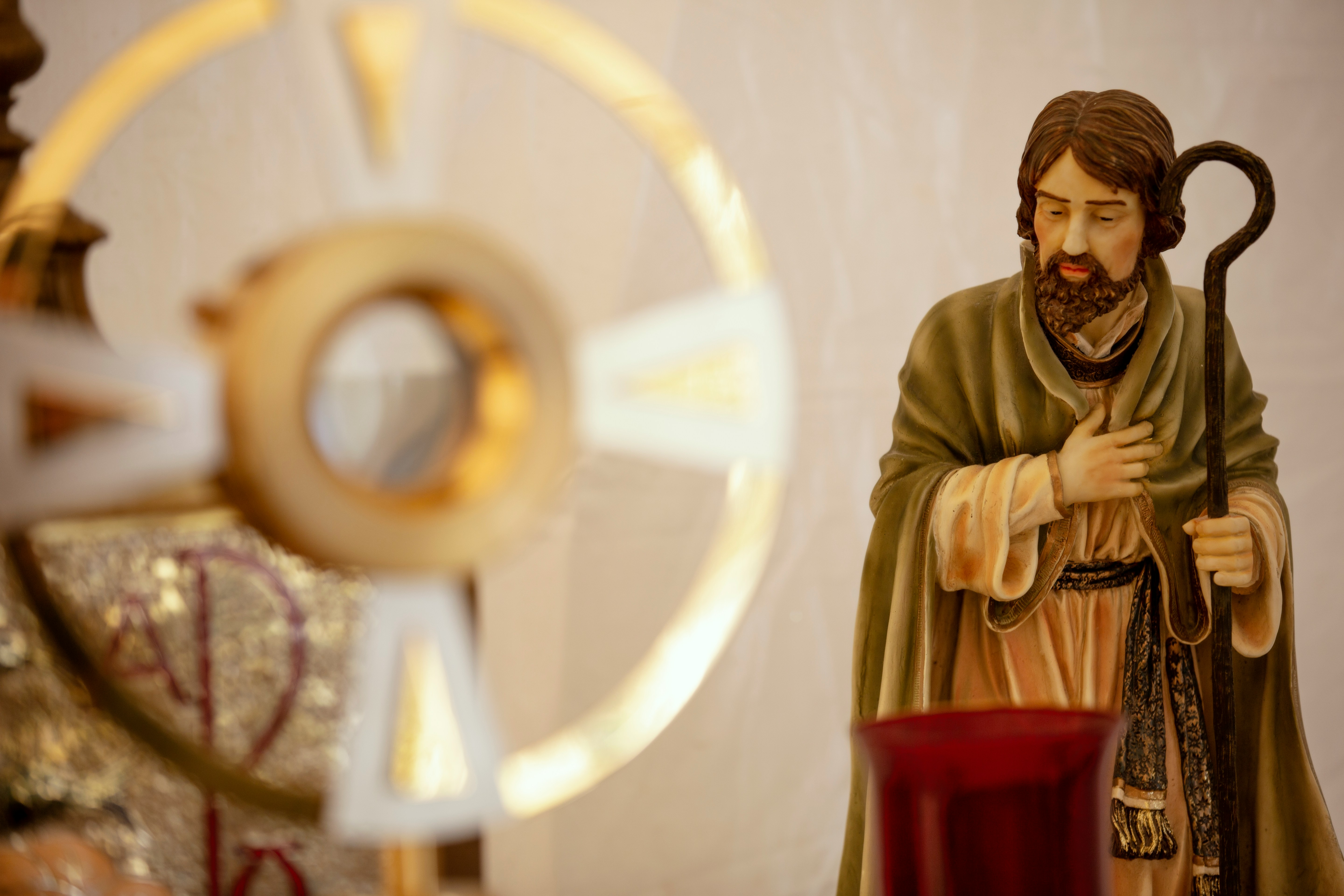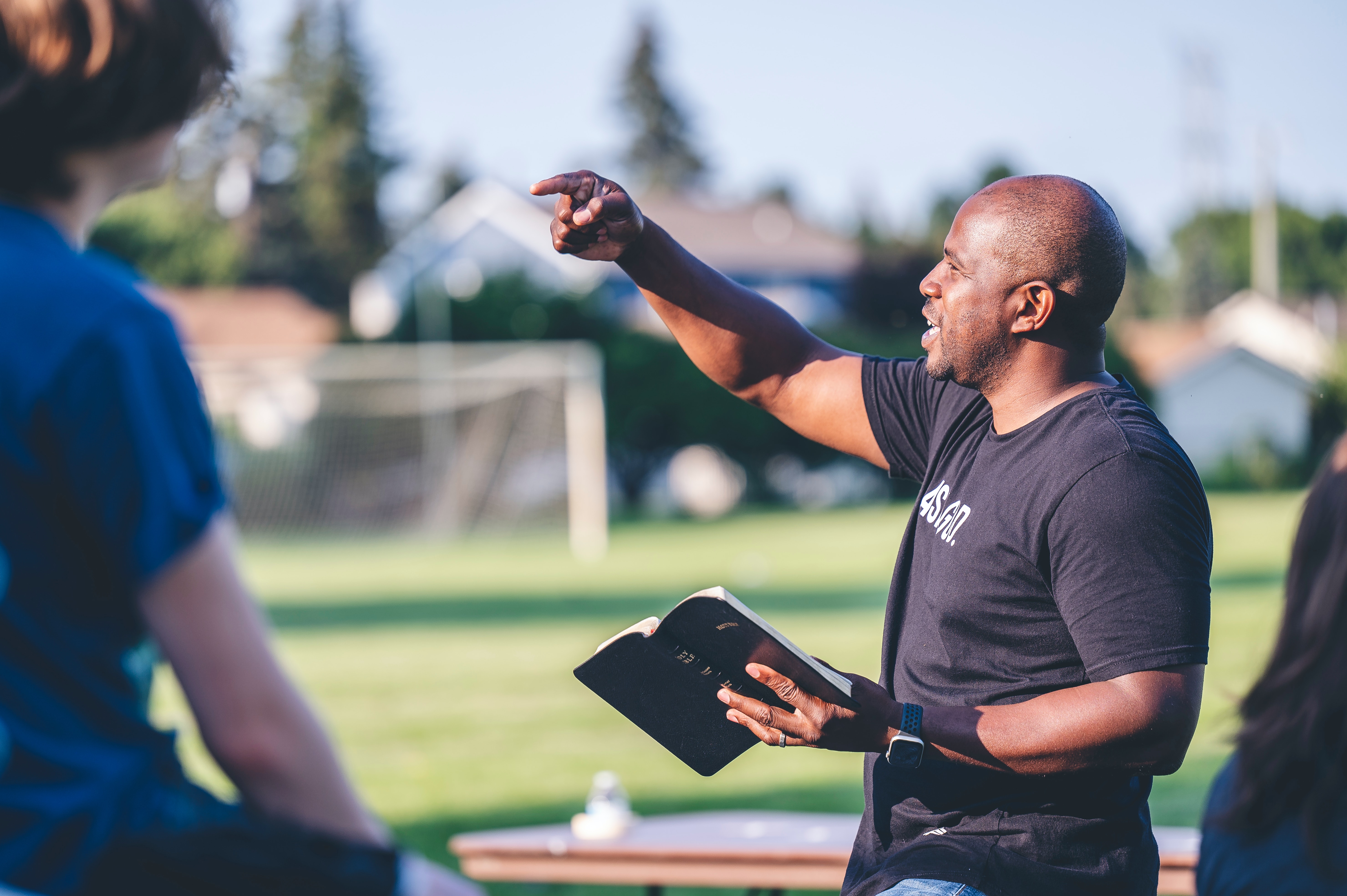Several years ago, I participated in a staff enrichment program called “Living Your Strengths”. We all read through a book, learned more about ourselves and were reminded of some aspects that we already knew, but perhaps had forgotten. As we came together for discussion and took the final personality test, we learned more about our coworkers as well.
The whole point of the exercise was to discover our God-given gifts and talents in order to put them to good use. Perhaps there was a certain ministry or service that we were really good at but were not involved in. Or, on the flip side, perhaps we were involved in something that we felt obligated to participate in because “no one else volunteered”, but were miserable because it was so far outside our comfort zone.
Today is my older sister’s birthday. If there was ever a case of opposites, her and I would be it. She is shy, introverted and a homebody. I am outgoing, extroverted and look for every excuse to get out of the house. Yet, while we were growing up, we were the best of friends. I stretched her and she stretched me. We were constant companions.
But I’ll be honest, there were times when we found it hard to understand each other, despite our deep love and respect for each other. At times like those, today’s first reading becomes so applicable. “Do not complain, brothers and sisters, about one another, that you may not be judged. Behold, the Judge is standing before the gates.” (James 5:9) It reminds me that she has different gifts and talents than I do, and that God is our only judge.
This truth was brought to the forefront again during a recent personality exercise with my current employer. We all answered a series of questions and were divided into four different groups. It was then declared that “A, B, C, or D” was our personality type. I realized that this exercise could be both enlightening and dangerous. It is so easy to make flippant comments like “oh, you reacted that way because you’re a B” or “now I get why you do that, because you’re an A”.
It’s so important to realize that we are all created in the image and likeness of God and that God is our only judge. We are all beautifully and wonderfully made and we are all made so differently. And if we are open to it, we can be deeply enriched by those differences.
I would invite you to rejoice in your strengths, be enriched by each others’ differences and put them all to good use in service of our Lord and Savior.
Hace varios años, participé en un programa de enriquecimiento para el personal llamado “Living Your Strengths” (Viviendo tus Fortalezas). Todos leímos un libro, aprendimos más sobre nosotros mismos y recordamos algunos aspectos que ya conocíamos, pero que quizás habíamos olvidado. Mientras nos reunimos para conversar y realizar la prueba final de personalidad, también aprendimos más sobre nuestros compañeros de trabajo.
El objetivo del ejercicio era descubrir los dones y talentos que Dios nos ha dado para poder utilizarlos de buena forma. Tal vez había cierto ministerio o servicio en el que éramos muy buenos pero en el que no estábamos involucrados. O, por otro lado, tal vez estábamos involucrados en algo en lo que nos sentíamos obligados a participar porque “nadie más se ofreció como voluntario”, pero estábamos miserables porque estaba muy fuera de nuestra zona de confort.
Hoy es el cumpleaños de mi hermana mayor. Si alguna vez hubiera un caso de opuestos, ella y yo lo seríamos. Es tímida, introvertida y hogareña. Soy sociable, extrovertida y busco cualquier excusa para salir de la casa. Sin embargo, mientras crecíamos, éramos mejores amigas. La estiré y ella me estiró. Éramos compañeros constantes.
Pero seré honesto, hubo momentos en los que nos resultó difícil entendernos, a pesar de nuestro profundo amor y respeto mutuo. En momentos como esos, la primera lectura de hoy resulta muy aplicable. “Hermanos míos: No murmuren los unos de los otros, para que en el día del juicio no sean condenados. Miren que el juez ya está a la puerta. ” (Santiago 5,9) Me recuerda que ella tiene dones y talentos diferentes a los míos, y que Dios es nuestro único juez.
Esta verdad volvió a salir a la luz durante un reciente ejercicio de personalidad con mi empleador actual. Todos respondimos una serie de preguntas y nos dividimos en cuatro grupos diferentes. Luego se declaró que “A, B, C o D” era nuestro tipo de personalidad. Me di cuenta de que este ejercicio podría ser a la vez esclarecedor y peligroso. Es muy fácil hacer comentarios frívolos como “oh, reaccionaste de esa manera porque eres una B” o “ahora entiendo por qué haces eso, porque eres una A”.
Es muy importante darnos cuenta de que todos somos creados a imagen y semejanza de Dios y que Dios es nuestro único juez. Todos estamos hechos hermosa y maravillosamente y todos estamos hechos de manera muy diferente. Y si estamos abiertos a ello, podemos enriquecernos profundamente con esas diferencias.
Los invito a regocijarse en sus fortalezas, a enriquecerse con las diferencias de cada uno y a aprovecharlas todas al servicio de nuestro Señor y Salvador.
Feature Image Credit: Josh Appel, unsplash.com/photos/woman-standing-near-person-in-wheelchair-near-green-grass-field-0nkFvdcM-X4
 Tami Urcia grew up in Western Michigan, a middle child in a large Catholic family. She spent early young adulthood as a missionary in Mexico, studying theology and philosophy, then worked and traveled extensively before finishing her Bachelor’s Degree in Western Kentucky. She loves tackling projects, finding fun ways to keep her little ones occupied, quiet conversation with the hubby and finding unique ways to love. She works full time, is a guest blogger on CatholicMom.com and BlessedIsShe.net, and has been doing Spanish translations on the side for over 20 years.
Tami Urcia grew up in Western Michigan, a middle child in a large Catholic family. She spent early young adulthood as a missionary in Mexico, studying theology and philosophy, then worked and traveled extensively before finishing her Bachelor’s Degree in Western Kentucky. She loves tackling projects, finding fun ways to keep her little ones occupied, quiet conversation with the hubby and finding unique ways to love. She works full time, is a guest blogger on CatholicMom.com and BlessedIsShe.net, and has been doing Spanish translations on the side for over 20 years.












